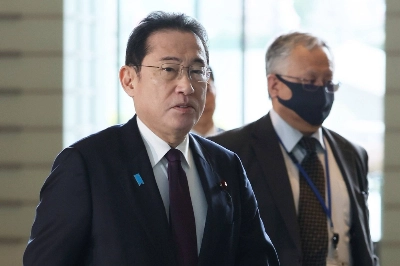The Liberal Democratic Party released the results of an internal survey Tuesday that showed 85 members failed to report political funds on their legally required income and expenditure reports over a five-year period to 2022.
But the survey’s methods were criticized by opposition parties as inadequate and lacking objectivity. Tuesday’s announcement is also unlikely to end the controversy, especially at a time when all parties are debating the next fiscal year budget, which must be passed before March 31. The government aims to have it clear the Lower House by the end of this month.
The Constitutional Democratic Party of Japan (CDP), Nippon Ishin no Kai, the Japanese Communist Party and the Democratic Party for the People demanded Tuesday that the LDP convene parliament's political ethics committee, which includes all parties.



















With your current subscription plan you can comment on stories. However, before writing your first comment, please create a display name in the Profile section of your subscriber account page.